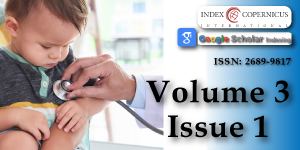Case-based education to improve learning and faculty teaching of residents and students in a clinical setting
Main Article Content
Abstract
Introduction: Current pediatric residents spend less time in the neonatal intensive care unit (NICU) and as a result, resident exposure to neonatal pathophysiology has decreased. Engaging learners efficiently while balancing clinical demands is challenging. Practices to enhance adult education include integration of problem centered learning into the demands of daily life in an environment in which learners feel safe asking questions and expressing themselves.
Methods: With this principal in mind, we developed a curriculum to enhance resident and medical student education during busy NICU rotations. The curriculum was case-based, available on-line and facilitated by neonatology faculty and fellows. A template designed to be concise and interactive was used to create and present the cases. After the case vignette, the template prompted medical students and residents to generate a differential diagnosis, order a diagnostic workup and narrow the diagnosis. Discussion of the diagnoses occurred at the conclusion of the cases; however, the template discouraged didactic lectures.
Results: In two years, cases were viewed 2,362 times. Facilitators and learners rated the quality and utility of the cases favorably overall. Cases took approximately 20 minutes to complete. Approximately 57% of survey respondents reviewed 1-2 cases per week and 9.6% reviewed 3-5 cases per week.
Discussion: A template with a concise and consistent format to construct and present cases allows for the creation of a curriculum that can be incorporated into a clinically demanding service and may enhance clinical teaching and learner engagement.
Article Details
Copyright (c) 2020 Wetzell EA, et al.

This work is licensed under a Creative Commons Attribution 4.0 International License.
Pastores SM, O'Connor MF, Kleinpell RM, Napolitano L, Ward N, et al. The Accreditation Council for Graduate Medical Education resident duty hour new standards: history, changes, and impact on staffing of intensive care units. Crit Care Med. 2011; 39: 2540-2549. PubMed: https://www.ncbi.nlm.nih.gov/pubmed/21705890
Kaufman DM. Applying educational theory in practice. BMJ. 2003; 326: 213-216. PubMed: https://www.ncbi.nlm.nih.gov/pubmed/12543841
Moote M, Krsek C, Kleinpell R, Todd B. Physician Assistant and Nurse Practitioner Utilization in Academic Medical Centers. Am J Med Qual. 2019; 34: 465-472. PubMed: https://www.ncbi.nlm.nih.gov/pubmed/21555487
DeLaroche A, Riggs T, Maisels MJ. Impact of the new 16-hour duty period on pediatric interns' neonatal education. Clin Pediatr (Phila). 2014; 53: 51-59. PubMed: https://www.ncbi.nlm.nih.gov/pubmed/24002047
Krathwohl DR. A Revision of Bloom's Taxonomy: An Overview. Theory Into Practice. 2002; 41: 212-218.
Ilguy M, Ilguy D, Fisekcioglu E, Oktay I. Comparison of case-based and lecture-based learning in dental education using the SOLO taxonomy. J Dent Educ. 2014; 78: 1521-1527. PubMed: https://www.ncbi.nlm.nih.gov/pubmed/25362693
Distlehorst LH, Dawson E, Robbs RS, Barrows HS. Problem-based learning outcomes: the glass half-full. Acad Med. 2005; 80: 294-299. PubMed: https://www.ncbi.nlm.nih.gov/pubmed/15734816
Grauer GF, Forrester SD, Shuman C, Sanderson MW. Comparison of student performance after lecture-based and case-based/problem-based teaching in a large group. J Vet Med Educ. 2008; 35: 310-317. PubMed: https://www.ncbi.nlm.nih.gov/pubmed/18723821
Berkson L. Problem-based learning: have the expectations been met? Acad Med. 1993; 68: S79-88. PubMed: https://www.ncbi.nlm.nih.gov/pubmed/8216642
Thistlethwaite JE, Davies D, Ekeocha S, et al. The effectiveness of case-based learning in health professional education. A BEME systematic review: BEME Guide No. 23. Med Teach. 2012; 34: e421-444. PubMed: https://www.ncbi.nlm.nih.gov/pubmed/22578051
McLean SF. Case-Based Learning and its Application in Medical and Health-Care Fields: A Review of Worldwide Literature. J Med Educ Curric Dev. 2016; 3. PubMed: https://www.ncbi.nlm.nih.gov/pubmed/29349306
Bradbury NA. Attention span during lectures: 8 seconds, 10 minutes, or more? Adv Physiol Educ. 2016; 40: 509-513. PubMed: https://www.ncbi.nlm.nih.gov/pubmed/28145268
Pammi M, Lingappan K, Carbajal MM, Suresh GK. Focused Evidence-Based Medicine Curriculum for Trainees in Neonatal-Perinatal Medicine. MedEdPORTAL. 2017; 13: 10664. PubMed: https://www.ncbi.nlm.nih.gov/pubmed/30800864

